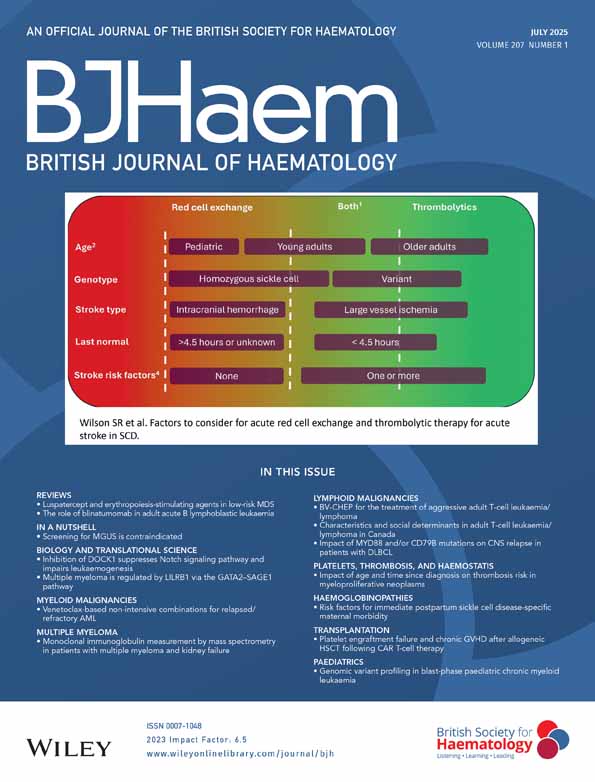Thalidomide therapy in refractory solid tumour patients
Promising preclinical studies and a number of clinical trials in patients with malignant tumours has renewed interest in an old drug, thalidomide ( Dixon et al, 1999 ; Singhal et al, 1999 ; Fine et al, 2000 ). We therefore read with interest the recent article reporting on the use of thalidomide in refractory myeloma ( Kneller et al, 2000 ). The authors found thalidomide to be clinically active in relapsed and even refractory multiple myeloma patients. However, our experience with thalidomide in patients with a variety of refractory solid tumours has been less promising. In a recently completed open-label, phase II, compassionate-use study, we evaluated the benefits of daily oral thalidomide in 16 adult patients with end-stage cancer. Twelve men and four women were enrolled with a median age of 67 years (range 32–84 years). Pathological diagnoses included a range of tumour types (pancreas – one case, breast – two cases, glioblastoma – three cases, ovarian – one case, prostate – two cases, rectal – one case, carcinoid – one case, myeloma – three cases, sarcoma – one case, oesophageal – one case). All patients had received prior therapy for their tumour. Performance status (PS) was distributed as one out of 16 patients with PS 3, three out of 16 patients with PS 2, ten out of 16 patients with PS 1 and two out of 16 patients with PS 0. Patients were initially treated with a starting dose of 600 mg/d. This was adjusted weekly depending on toxicity. The mean dose of thalidomide reached in the study population was 687 mg/d. Overall, we failed to observe any tumour responses. The toxicity profile with this anti-angiogenic agent was similar to that reported in previous studies. Several low-grade toxicities were observed, the most common of which were somnolence, fatigue and constipation. Although adverse events were mild, they were sufficient to result in five out of 16 patients withdrawing from the study. No drug-related deaths were seen. Currently, no patient remains on study and the median time on study was 28 d.
Based on our experience, we would not recommend thalidomide in patients with advanced cancer other than myeloma outside a clinical study. While thalidomide did not appear to be clinically effective in our patient population, we believe that, given the positive results seen in patients with myeloma, further investigation is warranted.




